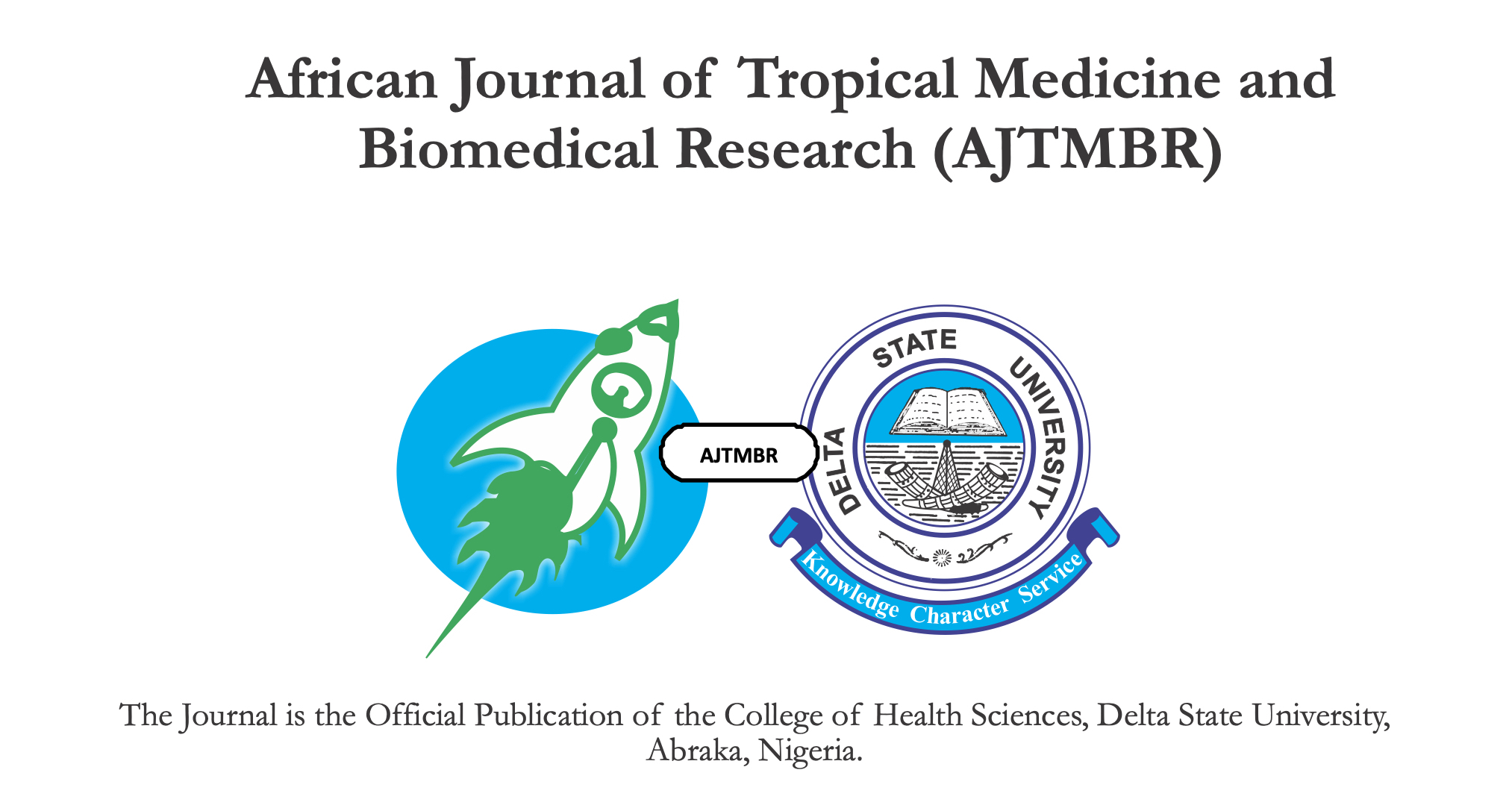A Study on the Management and Perinatal Outcome of Preterm Prelabour Rupture of Membranes at Delta State University Teaching Hospital, Oghara.
Keywords:
PPROM, Perinatal outcomesAbstract
Background: Preterm Prelabour Rupture of Fetal Membranes and its management is a significant burden in obstetrics, occurring in 2–3% of all pregnancies and leading to 30–40% of preterm births. It is therefore a significant risk factor for perinatal morbidity and mortality arising from its association with fetal prematurity. The aim of this study was to review the management and perinatal outcome of PPROM in Delta State University Hospital, Oghara.
Methods: This was a descriptive retrospective study conducted in the Department of Obstetrics and Gynaecology, Delta State University Teaching Hospital from January 2011 to December 2015. The study included 80 pregnant patients presenting with Preterm prelabour rupture of membranes between 28 to 36weeks+6days.
Results: The prevalence of PPROM was 5.7%. Majority of the women were aged between 30-34 and ≥35 years and the mean parity was 1.48±1.55. 37% of the patients presented between 28-31 weeks. No apparent risk factor for PPROM was identified in 26% of the patients. 43% had vaginal delivery and mean birthweight of the babies was 1.53±0.52kg. Majority of the preterm neonates had first and fifth minute Apgar scores greater than 7. Perinatal mortality was 18.8% in this study.
Conclusion: Premature Prelabour Rupture of Membrane is associated with poor fetal outcomes arising from the problems of prematurity and neonatal sepsis. A clear understanding of its consequences is essential in providing adequate interventions needed in the prevention of
unfavourable perinatal outcomes.
References
Biniyam S, Eyasu M. Maternal and Perinatal Outcome of Pregnancies With Preterm Premature Rupture of Membranes ( Pprom ) At Tikur Anbessa Specialized Teaching Hospital , Addis Ababa , Ethiopia. Ethiop Med J. 2014;52(4).
Diraviyam J, Karunakaran L. Analysis of Maternal and Perinatal Outcome in Cases of Preterm Premature Rupture of Membranes. Int J Reprod Contracept Obs Gynecol. 2017;6(6):2498502.
Okunades K, Ajepe A, Omisakin S, Habeeb-Adeyemi F, Okunowo A, Sekumade A, et al. A Review of Fetomaternal Outcome of Preterm Prelabour Rupture of Membranes in a Tertiary Hospital in Lagos, South-west, Nigeria. Niger Hosp Pract. 2015;16(13):138.
Caughey A, Robinson J, Norwitz E. Contemporary diagnosis and management of preterm premature rupture of membranes. Rev Obstet Gynecol [Internet]. 2008;1(1):1122.
Osaikhuwuomwan JA. Preterm rupture of membranes: the vitamin c factor. Rev Artic. 2010;12(1):608.
Hanke K, Hartz A, Manz M, Bendiks M, Heitmann F, Orlikowsky T, et al. Preterm prelabor rupture of membranes and outcome of very-low-birth-weight infants in the German Neonatal Network. PLoS One. 2015;10(4):112.
Nagaria T, Diwan C, Jaiswal J. A study on feto-maternal outcome in patients with premature rupture of membranes. Int J Reprod Contraception, Obstet Gynecol Nagaria Int J Reprod Contracept Obs Gynecol [Internet]. 2016;5(12):41237.
Okeke T, Enwereji J, Okoro O, CO A, EC E, Agu P. The Incidence and Management Outcome of Preterm Premature Rupture of Membranes (PPROM) in a Tertiary Hospital in Nigeria. Am J Clin Med Res [Internet]. 2014;2(1):147.
Emechebe C, Njoku C, Anachuna K, Udofia U. Determinants and Complications of Pre-Labour Rupture of Membranes ( PROM ) At the University of Calabar Teaching Hospital ( UCTH ), Calabar , Nigeria. Sch J App Med Sci. 2015;3(5):19127.
Khan S, Khan AA. Study on Preterm Premature Rupture of Membrane With Special Reference to Maternal And Its Fetal Outcome. 2016;5(8):276874.
ACOG. Premature Rupture of Membranes. 2016. p. 16577.
SOGC. Antibiotic Therapy in Preterm Premature. 2009. p. 8237.
Gynaecologists RC of O and. Preter Prelabour Rupture of Membranes. 2006. p. 111.
Adeniji A, Atanda O. Interventions and Neonatal Outcomes in Patients with Premature Rupture of Fetal Membranes at and Beyond 34 Weeks Gestational Age at a Tertiary Health Facility in Nigeria. Br J Med Med Res. 2013;3(4):138897.
Morris J, Roberts C, Bowen J, Patterson J, Bond D, Algert C, et al. Immediate delivery compared with expectant management after preterm pre-labour rupture of the membranes close to term (PPROMT trial): A randomised controlled trial. Lancet [Internet]. Elsevier Ltd; 2016;387(10017):44452.
Buchanan S, Crowther C, Morris J. Planned early birth versus expectant management for women with preterm prelabour rupture of membranes at 34 to 37 weeks gestation for improving pregnancy. Cochrane Libr [Internet]. 2004;(3).
ACOG, AAP. The Apgar Score. Committee Opinion No. 644. 2015.

Downloads
Published
Issue
Section
License

This work is licensed under a Creative Commons Attribution-NoDerivatives 4.0 International License.
Key Terms:
- Attribution: You must give appropriate credit to the original creator.
- NonCommercial: You may not use the material for commercial purposes.
- ShareAlike: If you remix, transform, or build upon the material, you must distribute your contributions under the same license as the original.
- No additional restrictions: You may not apply legal terms or technological measures that legally restrict others from doing anything the license permits.
For full details, please review the Complete License Terms.



